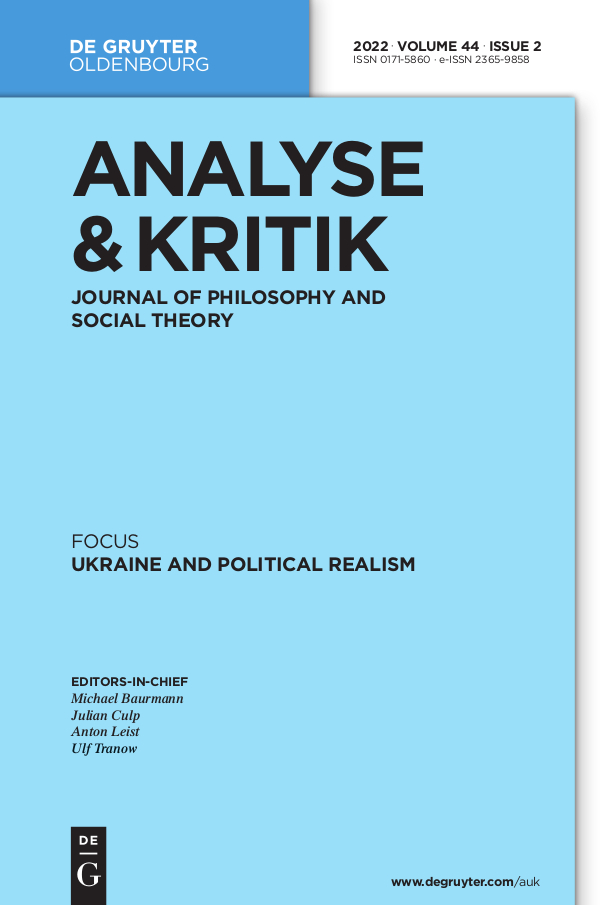Suchergebnisse
"Richard Ned Lebow"
Titel: International Relations Theory and the Ukrainian War
Autor: Richard Ned Lebow
Seite: 110-135
Drawing on my qualitative and quantitative research I show that the motives for war have changed in the course of the last four centuries, and that the causes of war and the responses of others to the use of force are shaped by society. Leaders who start wars rarely behave with the substantive and instrumental rationality assumed by realist and rationalist approaches. For this reason, historically they lose more than half wars than they start. After 1945, the frequency of failure rises to over 80 percent. Rationalists allow for miscalculation but attribute it to lack of information. In most wars, information was available beforehand that indicated, or certainly suggested, that the venture would not succeed militarily or fail to achieve its political goals. The war in Ukraine is a case in point.
Titel: What is Classical Realism?
Autor: Richard Ned Lebow
Seite: 215-228
Jonathan Kirshner misrepresents classical realism in fundamental ways. His wants to reclaim classical realism, but he never tells us what it is or engages other scholars who have developed the paradigm. He pleads for a more sophisticated realism but spends much of the book engaging neorealism and ‘hyperrationality.’ He foregrounds Thucydides but reads him superficially and indefensibly in terms of contemporary realist tropes. He asserts – incorrectly – that classical realism eschews abstract formulations but then offers his own. I critique his formulation, reading of Thucydides, and offer an overview of classical realism. I argue that classical realism is an ethical project embedded in a tragic understanding of life. It foregrounds human miscalculations, misjudgments, and their causes, sees tight connections between domestic and foreign policy, and the values that motivate both; and regards great powers as likely to be their own worst enemies.
Titel: Classical Realism is not ‘Everything, Everywhere, All at Once’
Autor: Jonathan Kirshner
Seite: 237-248
In their assessments of An Unwritten Future: Realism and Uncertainty in World Politics, two distinguished scholars of World Politics engage in a spirited contestation about the role of classical realism in International Relations (IR) theory. Richard Ned Lebow aspires to defend the paradigm from what he suggests are barbarians at the gate. In this response I offer rejoinders to his treatment of E. H. Carr and Robert Gilpin, and his characterization of the ways in which we each engage Thucydides’ The Peloponnesian War as an inspirational text. Stephen Krasner raises a number of thoughtful and savvy constructive criticisms of An Unwritten Future, some of which ring true. Yet he and I continue to markedly disagree about the importance of analytical uncertainty for understanding IR, and also with regard to the role of history in explaining behavior in world politics. And in an otherwise sophisticated critique, Krasner ultimately reduces classical realism to a caricature. In my response I clarify why in fact it is his preferred approach, structural realism, which, on its own, is irretrievably indeterminate and leaves scholars needing much more that its minimalist disposition can possibly hope to provide. I conclude with a short elaboration of why classical realism offers a more productive way forward.

Focus: Ukraine and Political Realism
2022 (44) Heft 2
Editorial
It is an issue of debate as to which side did more to breathe new life into political realism within the menu of international relations theories: whether or not Putin’s war has been effective against Ukraine, or John Mearsheimer’s accusation that, since 2014 at the latest, ‘the West’ would be responsible for a war. Certainly, the Russian invasion in terms of its style, propaganda and accompanying drama looks as though its initiators tried to enact the most straightforward, brutal and si...